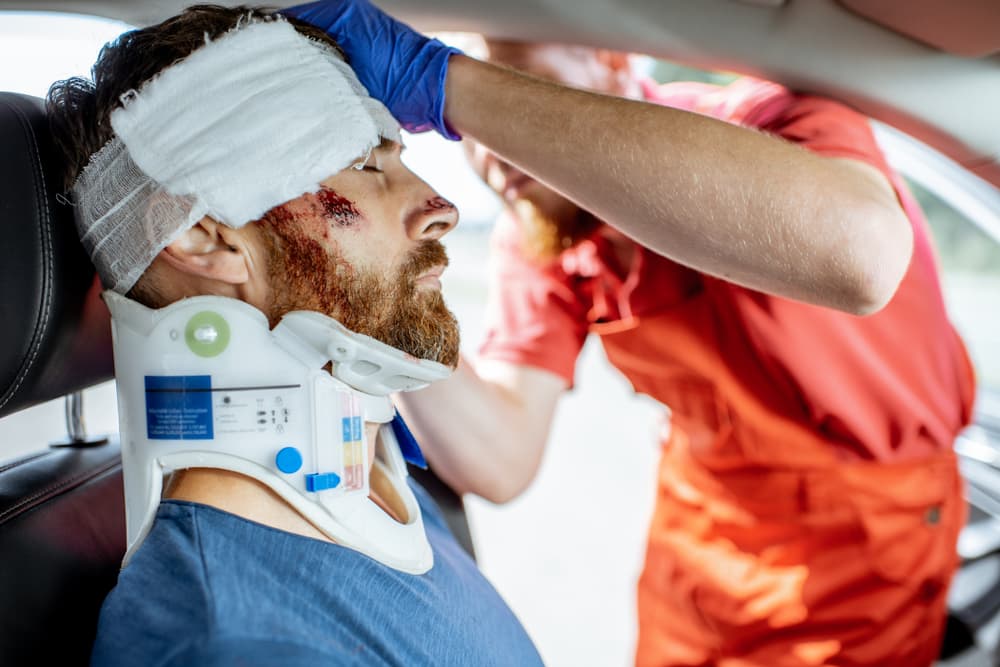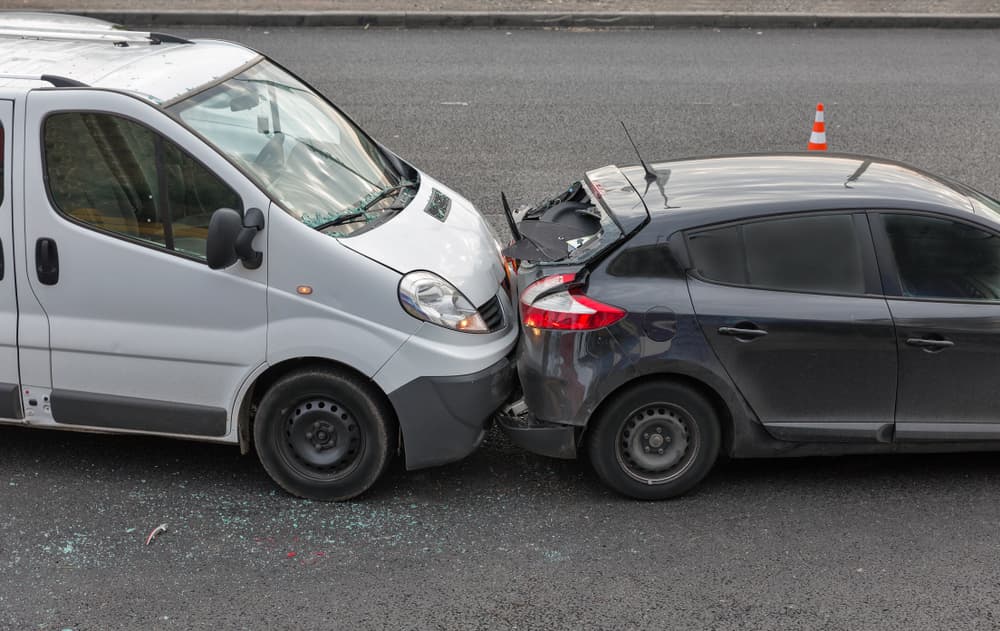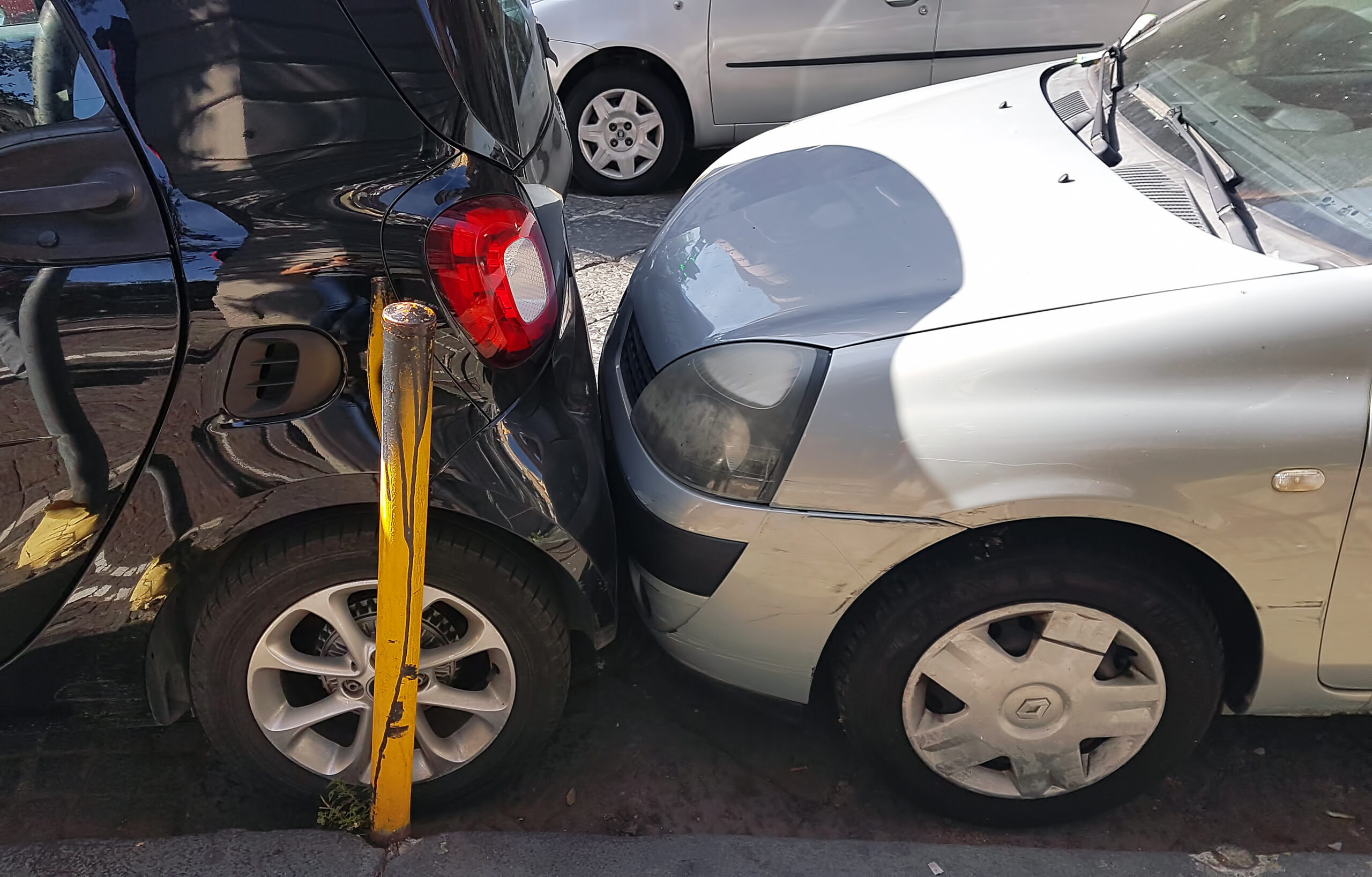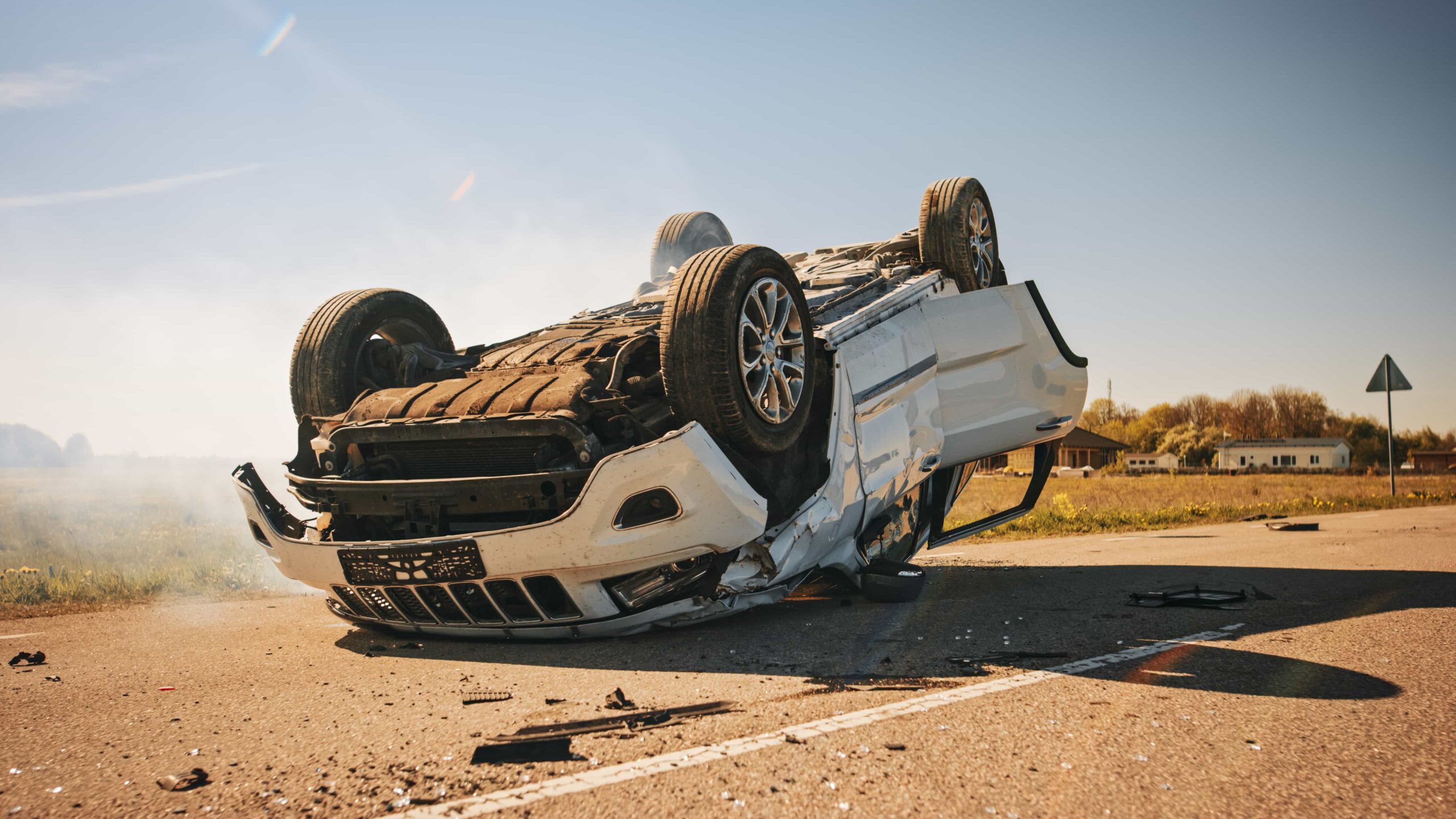Forceful car accidents can lead to serious bodily injuries, including severe head trauma. In some cases, the force of an auto accident causes an accident victim's body to move around violently inside their vehicle.
As a result, a driver or passenger’s head may strike the window, steering wheel, or headrest in their car, bringing about a traumatic head or brain injury. When that happens, accident victims must seek prompt medical treatment as quickly as possible. For example, they may need to visit the emergency room, consult their primary care doctor, or meet with a neurologist.
In addition to following through with a medical treatment regimen after a head injury, accident victims should consult an experienced attorney as quickly as possible. A Chicago car accident lawyer in your area can gather medical records, police reports, and other documentation in your case while you focus on making a full recovery from your head injury.
After you complete your medical treatment, your lawyer can begin negotiating with the insurance company and seeking the compensation you deserve for your head injuries and other medical complications.
If necessary, your lawyer can also file a lawsuit in the court system and take your case to a civil jury trial or binding arbitration hearing.
Schedule a Free Initial Consultation Today!
How Auto Accidents Happen
Auto accidents that lead to debilitating head injuries frequently result from the negligence of other drivers. A driver is negligent when they deviate from the prevailing standard of care, such as violating one or more traffic laws or engaging in distracted or intoxicated driving.

Drivers who violate traffic laws are more likely to cause severe and forceful collisions than other drivers.
Some of the most common route rule violations that lead to violent traffic accidents include:
- Failing to use turn signals when making a turn or executing a lane change
- Excessive speeding
- Failing to yield the right-of-way to other vehicles at the appropriate times
- Failing to use mirrors, backup cameras, and other vehicle technology while driving or pulling out of parking spaces at parking lots and parking garages
In addition to traffic law violations, forceful traffic accidents can happen when drivers exhibit road rage and engage in aggressive driving maneuvers. For example, drivers may tailgate other vehicles, aggressively weave around traffic, and cut other cars off in traffic, especially at highway merge lanes.
When drivers execute these aggressive maneuvers, they may cause severe accidents and head injuries or other medical complications.
Next, some forceful traffic accidents result from intoxicated or drugged driving. Most drivers are legally drunk if their BAC, or blood alcohol concentration, meets or exceeds 0.08 percent.
When drivers are under the influence, they are far more likely than sober drivers to cause forceful collisions. These drivers may experience physical symptoms, including dizziness and blurred vision. They may also experience mental symptoms, including limited concentration, preventing them from making intelligent decisions on the road.
Finally, intoxicated drivers may experience delayed reflexes and reaction time, preventing them from stopping short to avoid a traffic accident.
Finally, forceful auto accidents can result from distracted driving, where a driver fails to observe the road.
Drivers may distract themselves by listening to loud music in their vehicle, adjusting the volume or tuning the radio on their stereo, sending a text message using a cellular device, or programming a GPS navigation system.
Other people in the car may also distract a driver by engaging in horseplay or roughhousing with them. Distracted drivers who turn their attention away from the road may not see or appreciate a nearby vehicle, negligently causing an accident that leads to severe head injuries.
If you suffered a head injury in an auto accident resulting from another driver's negligence, you should immediately seek the legal help you need. An experienced car accident attorney in your area can investigate your accident and help you pursue the compensation you deserve for your head injuries and other resulting medical complications.
Types of Auto Accidents that Cause Head Injuries
Whenever drivers violate traffic laws and engage in other careless and reckless driving maneuvers, the chances are good that they will cause a serious auto accident. When that happens, drivers and passengers may suffer severe head injuries.
Some of the most common types of auto accidents that lead to head and brain injuries include:
- Rear-end accidents, where the front of one vehicle hits the back of another car, usually because of tailgating
- Sideswipe accidents, where the sides of vehicles traveling in the same direction strike one another
- Broadside or T-bone accidents, where the front of one vehicle hits the side of a car traveling on an intersecting road
- Head-on collisions, where two vehicles strike one another from the front, often with a significant amount of force
The force of these collisions may cause an accident victim's body to move forwards and backward, or from side to side, in an abrupt manner and cause their head to strike something in the vehicle.
As a result, the driver or passenger may end up with a severe head injury that leads to both short-term and long-term complications.
If you suffered a head injury in one of these accidents that another driver caused, you should immediately consult with legal counsel to explore your options. Your attorney can lay these options out for you and help you select your case's best course of action. Your attorney can also help you file a claim or lawsuit promptly and pursue the monetary compensation you need for all of your injuries.
Common Head Injuries in Car Accidents
When a driver hits their head in a car accident, they may suffer a debilitating traumatic head or brain injury (TBI). These injuries vary significantly in size and scope, and some TBIs are more severe than others.
One common type of TBI is a concussion. A concussion occurs because of a significant amount of force to an accident victim's head. The strength of this impact may cause the accident victim's brain to move around and hit the side of their skull, resulting in a brain bruise.
Moreover, this movement may disrupt the axons and neurons, which serve as the brain's internal hardware system. The neurons and axons are responsible for distributing messages to/from the brain and other parts of the body. When they become disrupted, their ability to function may be affected.
Concussions can lead to both short and long-term symptoms, depending upon their severity. Short-term symptoms of a concussion often include headaches, dizziness, nausea, and short-term memory loss. However, some concussions may cause long-term symptoms, including long-term or permanent memory loss, post-concussive migraine syndrome, or a complete inability to function.
In addition to concussions, victims of forceful car accidents may suffer other head injuries that lead to a coma. When an individual falls into a coma, they might remain unresponsive for the rest of their life. Accident victims may end up in a lifelong vegetative state, relying on around-the-clock life support.
Head injuries can also require a significant amount of medical treatment, including consultations with a neurologist and surgical procedures to correct the condition. If you or a person you love suffered an injury in a violent car crash, you should obtain the medical help and legal assistance that you need right away.
While you focus on getting the medical treatment you need, your lawyer can start preparing your settlement demand package by gathering up medical records and bills, police reports, and other essential documents to use in your case. Once your medical treatment has concluded, your lawyer can submit these documents to the insurance adjuster handling your claim and begin negotiating settlement compensation on your behalf.
Steps You Can Take After Your Car Crash
Following a severe and forceful car collision, there are specific steps you can take to maximize the value of your personal injury claim or lawsuit and recover the total compensation you deserve for your head injuries.
Seek Ongoing Medical Help
First, injured accident victims should seek ongoing medical treatment for their head injuries. In some cases, they may need to consult with their primary care doctor, or with a neurologist, for additional medical care.
Following through with this medical treatment serves two purposes. First, it puts the accident victim in a position to recover from their medical complications as much as possible. Next, it shows the insurance company that the injury or injuries are serious – and that they deserve significant monetary compensation.
Talk With a Lawyer Who Can Help You
In addition to seeking ongoing medical treatment after your car accident, you should speak with a car accident lawyer as quickly as possible about your legal options – and about how best to proceed forward with your case.
Your attorney can discuss your accident circumstances with you, file a claim on your behalf, negotiate with insurance company representatives, and, if necessary, pursue litigation in your case.
Investigating Your Accident
Your attorney can help you investigate the circumstances of your car accident by retaining an accident reconstructionist to speak with witnesses, talk with you about how the accident occurred, review police reports, and take photographs of the accident scene. Your accident reconstructionist can also prepare a detailed report and, if necessary, testify as a witness in your case.
Filing a Claim
After gathering the necessary documentation, your lawyer can file a personal injury claim with the responsible driver's insurance company on your behalf. Your lawyer can then negotiate with insurance company representatives to pursue a fair settlement offer. If the insurance company does not offer you favorable monetary damages, your lawyer can file a lawsuit and pursue litigation in court.
Litigating Your Case
During litigation, your lawyer can assist you during the discovery process, represent you at a pre-trial or settlement conference, and help you make informed and intelligent decisions throughout your case.
If your case does not resolve during litigation, your attorney can represent you at a civil jury trial, mediation hearing, or binding arbitration proceeding and pursue the best possible result on your behalf.
Recoverable Monetary Damages for Head Injuries
Victims of severe head injuries may be eligible to recover various types of monetary compensation, depending upon the nature and extent of their injury, the cost of their medical treatment, and the lifetime consequences they may experience due to their injury.
First, head injury victims may recover compensation for their related medical expenses. If a medical provider determines they may need to undergo a future surgery or other procedure, those anticipated medical costs may become part of the accident victim's personal injury claim or lawsuit.
Moreover, if their head injury prevents them from working or requires that they switch to an easier job and take a pay cut, the accident victim can recover damages for lost income and/or loss of earning capacity.
In addition to these economic damages associated with head injuries, accident victims may be eligible to recover compensation for their intangible losses.
Those losses may include compensation for all related:
- Mental distress
- Inconvenience
- Pain and suffering
- Lost quality of life
- Permanent disability
- Lifetime care costs, if the accident victim can no longer care for themselves due to their head injury
A knowledgeable car accident attorney can help you maximize your monetary recovery and pursue the highest monetary award possible through either settlement or litigation.
Contact a Car Accident Lawyer Right Away

If you recently sustained head injuries in a car accident that was not your fault, you should speak to legal counsel right away. Your attorney can evaluate your claim and help you determine the types and amounts of monetary compensation you can expect in your case.
Your lawyer can also assist you with filing a timely claim or lawsuit for the monetary compensation you deserve. Accident victims only have two years from their accident to seek monetary compensation for their head injuries and other medical complications. Therefore, act quickly when seeking out and retaining an experienced Chciago personal injury attorney to represent you.
Once your lawyer enters an appearance in your case, they can start pursuing the full monetary compensation you deserve for your head injuries.



